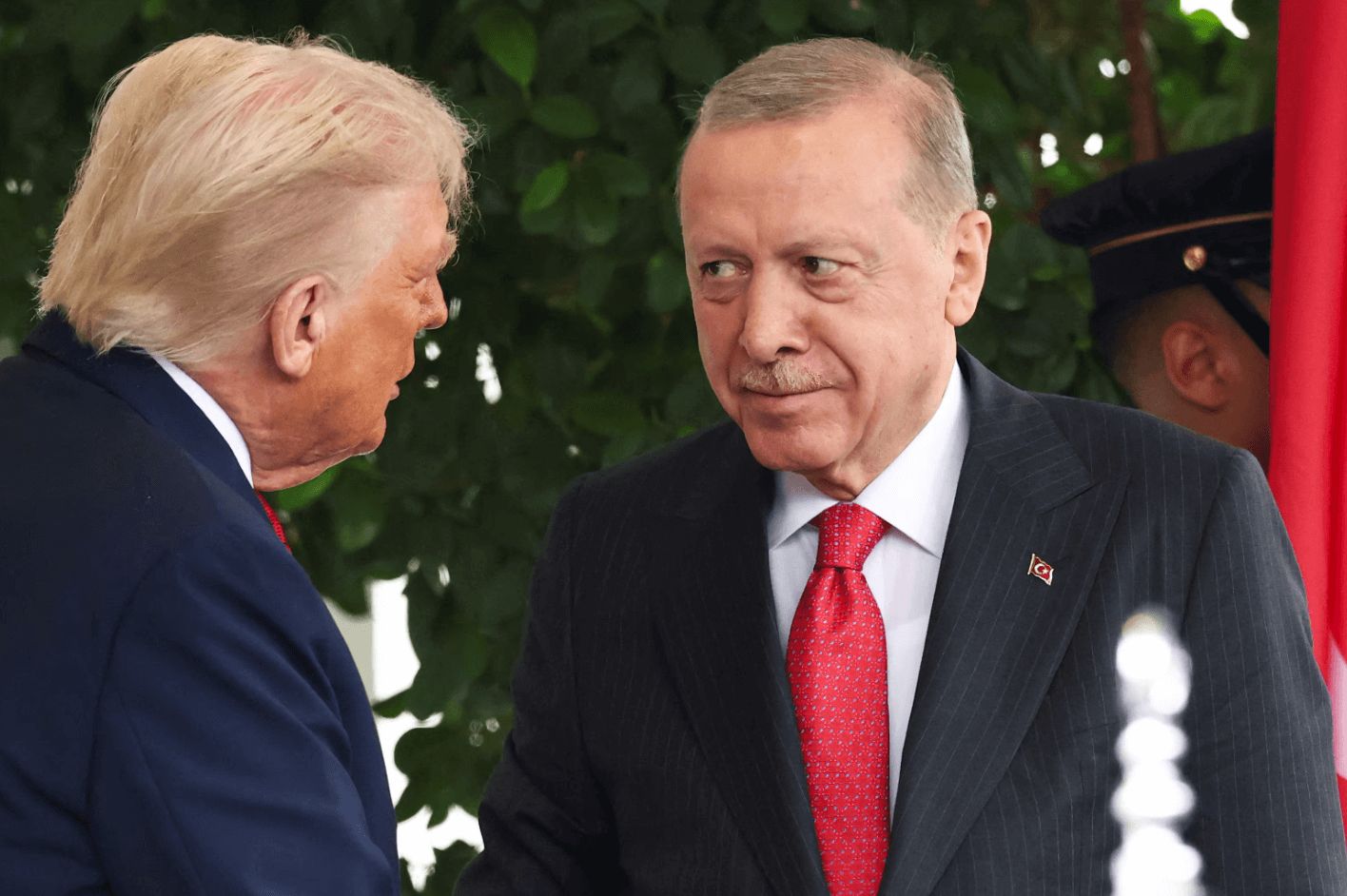- Conservative Fix
- Posts
- Trump Urges Erdogan to Halt Russian Oil Purchases, Signals Possible End to Sanctions
Trump Urges Erdogan to Halt Russian Oil Purchases, Signals Possible End to Sanctions
White House meeting opens door for F-35 sales to Turkey as Trump reshapes NATO dynamics.

President Donald Trump rolled out the red carpet for Turkish President Recep Tayyip Erdogan on Thursday, welcoming him back to the White House with warm words and tough expectations.
As the two leaders met in the Oval Office for the first time since Trump returned to the presidency, Trump made clear that future U.S.-Turkey defense deals could hinge on one critical move: Ankara halting its oil purchases from Russia.
“I’d like to have him stop buying any oil from Russia while Russia continues this rampage against Ukraine,” Trump said, adding that he believed Erdogan would ultimately “be successful in buying the things that he wants to buy.”
The meeting marked a sharp departure from the Biden-era chill between Washington and Ankara. While the Biden administration kept Turkey at arm’s length over its ties to Moscow, Trump has maintained a personal friendship with Erdogan, which both leaders are now leveraging to reshape the U.S.-Turkey alliance.
Turkey is seeking to:
End U.S. sanctions imposed in 2020 over its purchase of Russian S-400 missile defense systems.
Resume its role in the F-35 fighter jet program, from which it was expelled under Trump’s first term.
Secure approval for 40 F-16 jets, plus modernization kits for its aging air fleet.
Trump, in turn, is pressuring Erdogan to cut off energy funding to the Kremlin as he ramps up efforts to economically isolate Russia and deprive it of resources to continue its war in Ukraine.
Trump signaled openness to lifting sanctions and restarting high-level defense cooperation, including potential F-35 sales, if talks with Erdogan go well.
“If we have a good meeting, [lifting sanctions will happen] almost immediately,” Trump said.
That’s a significant reversal. Turkey was once both a buyer and manufacturer of the F-35 stealth fighter before being kicked out of the program for buying the S-400 system from Moscow something that deeply angered both the Pentagon and Congress at the time.
But with NATO under renewed stress and Turkey now aligned with the U.S. in supporting Syria’s central government, the Trump administration appears ready to make strategic concessions in exchange for realignment on energy, defense, and regional stability.
Erdogan also hinted at a rare concession on religious rights, telling reporters he was ready to do “whatever is needed” to reopen the Orthodox seminary on Heybeliada Island, which has been closed since 1971 and remains a sticking point in Turkey’s fraught relationship with Greece and the EU.
“I will be discussing the matter with [Ecumenical Patriarch] Bartholomew when I return to Turkey,” Erdogan said.
The move could help Turkey’s long-stalled EU membership bid, and signals Erdogan’s desire to project a more cooperative posture in dealings with the West especially under a Trump administration focused on transactional diplomacy and deal-making over lecturing.
Trump and Erdogan’s warming relationship could mark the beginning of a new chapter for NATO, one less obsessed with appeasing EU bureaucrats and more focused on energy independence, military readiness, and countering threats in the Middle East and the Black Sea.
Turkey, which has the second-largest army in NATO, remains a critical power player in a region where American influence is constantly challenged by Iran, Russia, and China. Trump’s ability to pull Erdogan out of Moscow’s orbit could significantly reshape the balance of power but it will require hard-nosed negotiations and clarity on American expectations.
If Erdogan is willing to cut ties with Russian oil and recommit to NATO’s strategic vision, he may find himself back in Washington’s good graces and back in the F-35 program.
But make no mistake: under Trump, the U.S. isn’t giving away anything for free. Deals come with demands.
Share this or subscribe to our newsletter for more foreign policy updates and global power moves under Trump’s second term.